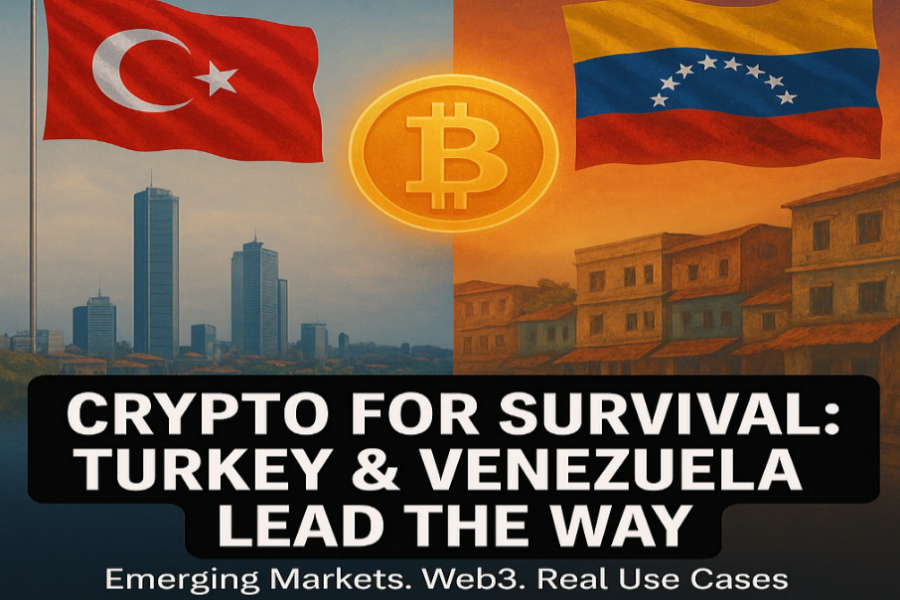Overview
The majority of headlines regarding the adoption of cryptocurrencies highlight Silicon Valley or other significant financial centers, but the true momentum is subtly increasing in emerging economies. Particularly noteworthy as improbable leaders in cryptocurrency usage are Venezuela and Turkey. Why? Because cryptocurrency is more than simply an investment for millions of people in these countries—it's a matter of survival.
Financial Factors Driving Adoption
Venezuela:
Years of excessive inflation have severely damaged the bolívar, the country's currency. Since the economy is failing and prices are soaring, people are using stablecoins like USDT and cryptocurrencies like Bitcoin to conduct daily transactions and retain wealth. Cryptocurrency is frequently the only reliable financial instrument accessible.
Turkey:
A lot of people are looking for alternatives as a result of the Turkish lira's steady weakening in recent years. Due to its youthful, tech-savvy populace and expanding internet connectivity, Turkey has emerged as one of the leading nations for the adoption of cryptocurrencies. Here, in contrast to Venezuela, cryptocurrency is frequently viewed as a financial. guarantee as well as an investment.
Control by the Government and Public Attitude
Despite their widespread use, both nations have complicated policy connections with cryptocurrency: The Venezuelan government has made limited attempts to both embrace and manage the cryptocurrency industry, including introducing its own digital money, the Petro. People still use international cryptocurrencies to get around government regulations and financial difficulty. Instead of outright prohibiting it, Turkey has expressed interest in regulating the location. The government is investigating the possibility of a central bank digital currency (CBDC) and is working on crypto laws. Nevertheless, public interest continues to grow, and trading volumes continue to be strong.
The Function of Web3 Platforms and Hive
The number of users on decentralized networks such as Hive has increased significantly in both Turkey and Venezuela. Hive provides more than simply financial transactions; it's a platform that allows bloggers, freelancers, and content producers to make cryptocurrencyκ in a setting shielded from censorship. With the help of platforms like LeoFinance, Ecency, and PeakD, people in inflation-affected nations may make money off of their time and expertise without relying on conventional banks or middlemen. For many people in Venezuela, Hive has emerged as a dependable source of income. It is becoming more and more popular in Turkey as a community-driven method of Web3 engagement.
Can Pakistan Gain Knowledge?
Pakistan is also experiencing an increase in youth unemployment and inflation. Alternative revenue sources are becoming more and more in demand. Pakistanis can have a comparable opportunity to profit from cryptocurrency, avoid the depreciation of fiat money, and participate in the global digital economy if platforms such as Hive are properly understood and implemented. It is possible for Pakistan to become a powerful participant in the Web3 ecosystem by taking lessons from the experiences of Turkey and Venezuela.
Final Thoughts
Turkey and Venezuela highlight a crucial fact: cryptocurrency isn't just for the rich; less fortunate people are finding it to be indispensable. Financial freedom, the avoidance of hyperinflation, and the creation of new revenue streams are all being accomplished via cryptocurrencies and decentralized platforms like Hive. Decentralized, not just digital, is the way of the future for emerging markets.
